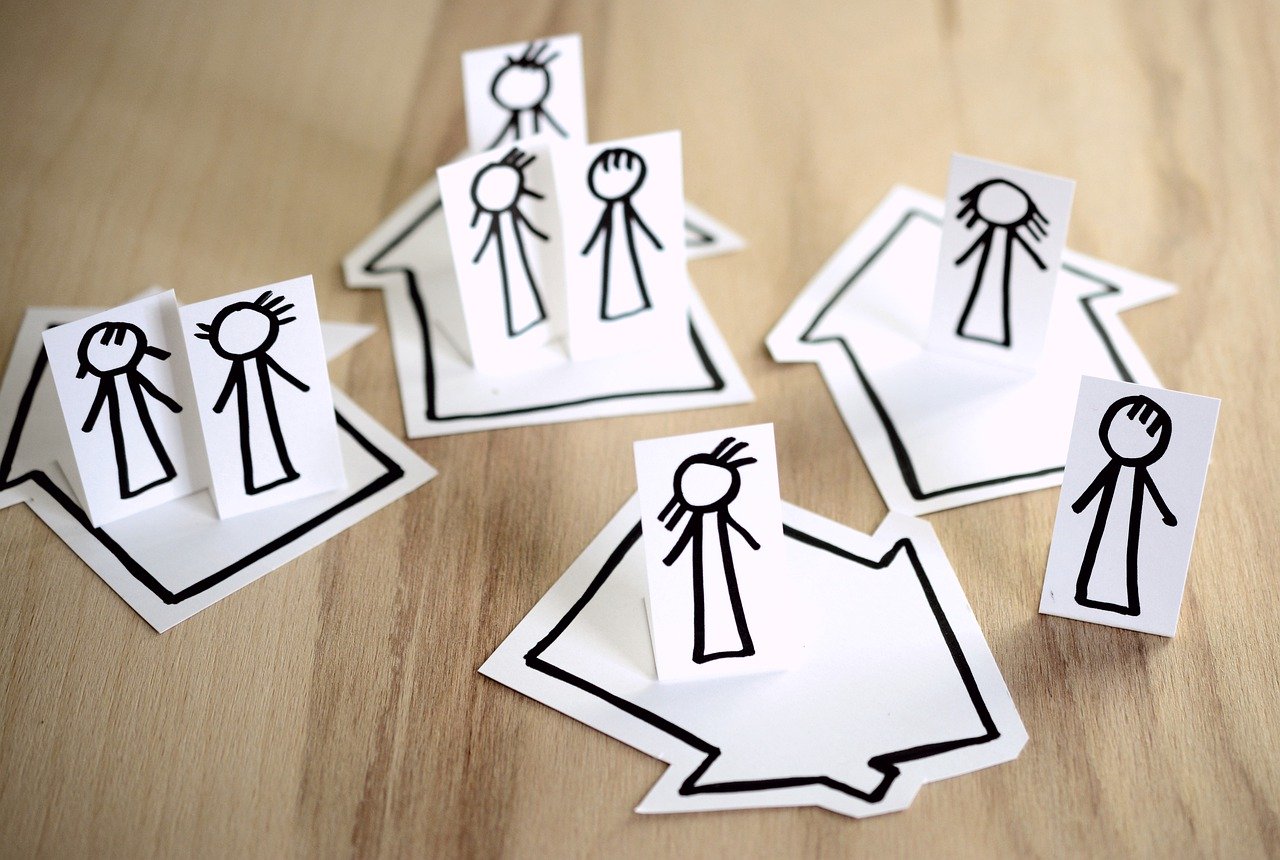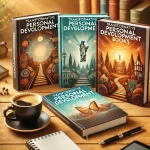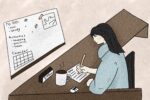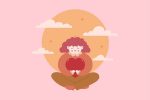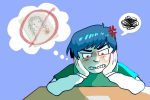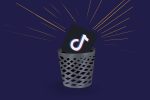It’s 7:30 am, and your eyes open to the sound of a peaceful piano gently waking you up, reminding you to start your day. You only hit snooze once, allowing yourself this small treat of five extra minutes in bed — you deserve this! It’s a quarantine, after all.
After a brief moment of gratitude journaling, you make a light breakfast, impressed with yourself for your commitment to your health despite the challenges of not going out. Your gym apartment closed, which was a bummer for your 5k training, but that doesn’t stop you from your daily morning yoga practice; those chaturangas won’t perfect themselves. You end the practice with a short mindfulness meditation.
You get dressed for the day, knowing this small trick keeps you from excessively lounging around. It’s only 9:30 am.
All of your online work is already done – you worked ahead.
Next on the agenda is baking bread; you need time for the dough to rise, of course! You relish this time to explore new hobbies: baking, painting, finally learning to play the guitar, embroidery, doing puzzles and more. You’ve already finished reading “War and Peace,” “Moby Dick,” “Tess of the d’Urbervilles” and the entire “Lord of the Rings” trilogy. Next up on your reading list is the complete works of Stephen King.
That’s not to mention the litany of other projects you have lined up; you now have time to start your podcast, become TikTok famous, write the next New York Times bestselling novel, make selling second-hand clothing a successful side hustle and kickstart your lifestyle blog. After all, didn’t Shakespeare write “King Lear” during the bubonic plague quarantine?
You somehow manage to dedicate attention to each project before dinner, which means you’ll even have time for some self-care tonight. Social distancing was the best thing that could’ve happened for your productivity.
Except it’s not.
For the vast majority of people, working remotely and staying home for such a prolonged amount of time are both completely foreign ideas. Whether you’re an extrovert, have problems with mental health or are bored from sitting at home for days on end, the current coronavirus quarantine is less than glamorous, and the well-intentioned tweets and posts calling for productivity and time well-spent don’t help the overall mood of those affected.
Sure, it’s good to look on the bright side; as some users have pointed out, maybe there will be some notable art and writing that comes out of this pandemic.
But in a situation already brimming with fear, anger, sadness, uncertainty and other negative emotions, adding the feeling of guilt for not “making the most” of all of this time at home is anything but helpful. Quarantine isn’t a vacation.
The reality for most people looks extremely different than the one described above; most of us aren’t going to bed and waking up at strict times, organizing our pantry or developing six-pack abs. If you spend most of your day staring at an online assignment, watching TikToks or goofing off with your roommate or family, you’re not alone.
And that’s not to say it’s bad to be baking bread and doing yoga and reading and starting podcasts, and if you’re doing all of those things in the same day, that’s cool! The problem isn’t that those options exist; the problem is when they become the expectation.
After people pointed out that this new lack of daily structure was hurting their mental health and causing immense boredom, users online started suggesting ways to pass the time, like reading and baking bread. It’s true that routine and activity can help those feelings of boredom and sadness, but you’re not failing if you lack those. Somehow these small suggestions became warped into something far less helpful in the form of calls for the next “King Lear” and efficient daily schedules.
The coronavirus pandemic is yet another instance that highlights how productivity is America’s coping mechanism — and not a very effective one. As a society, Americans have a mindset that if we try harder, do more and be more efficient, somehow, we’ll power through it and overcome insurmountable odds.
Maybe that’s noble or idealistic. The actual outcome is one that is less ideal: exhaustion. The simple fact is that people get tired, and right now, starting a podcast or creating a blog might seem futile for some. We can’t glorify the situation by expecting the next Shakespeare to emerge from this pandemic. We also shouldn’t compete to have the most impressive quarantine.
This quarantine-as-a-vacation mindset also diminishes the reality of why we’re here and what that means for many people. People are getting sick, and medical professionals are on the frontlines of addressing those in need. Job layoffs and a lack of basic necessities like toilet paper are now a fact of life, and many people still face paying rent.
College students still have class — it’s just online now — and those who are able to, are working remotely. Many people worry about their health, as well as their family’s health, and turning on the news doesn’t do much to ease that worry. There’s also a growing amount of bigotry and hate.
Collectively, there’s a lot to process.
That’s why it’s okay not to be a quarantine pro; we’re handling a lot right now, as individuals and as a society, and we shouldn’t be adding unnecessary stress or unrealistic expectations to an already bad situation. We’re all just trying our best to deal with what’s going on, and sometimes that’s the most we can do.
So, whether cleaning your house or writing a novel is the right answer for you is up to you to decide, not for anyone else to pressure or guilt you into. And if you only do one of those things today, that’s still good. Staying home is the most important thing you can do right now.
Oh, and I think that loaf of bread is ready to come out of the oven.


